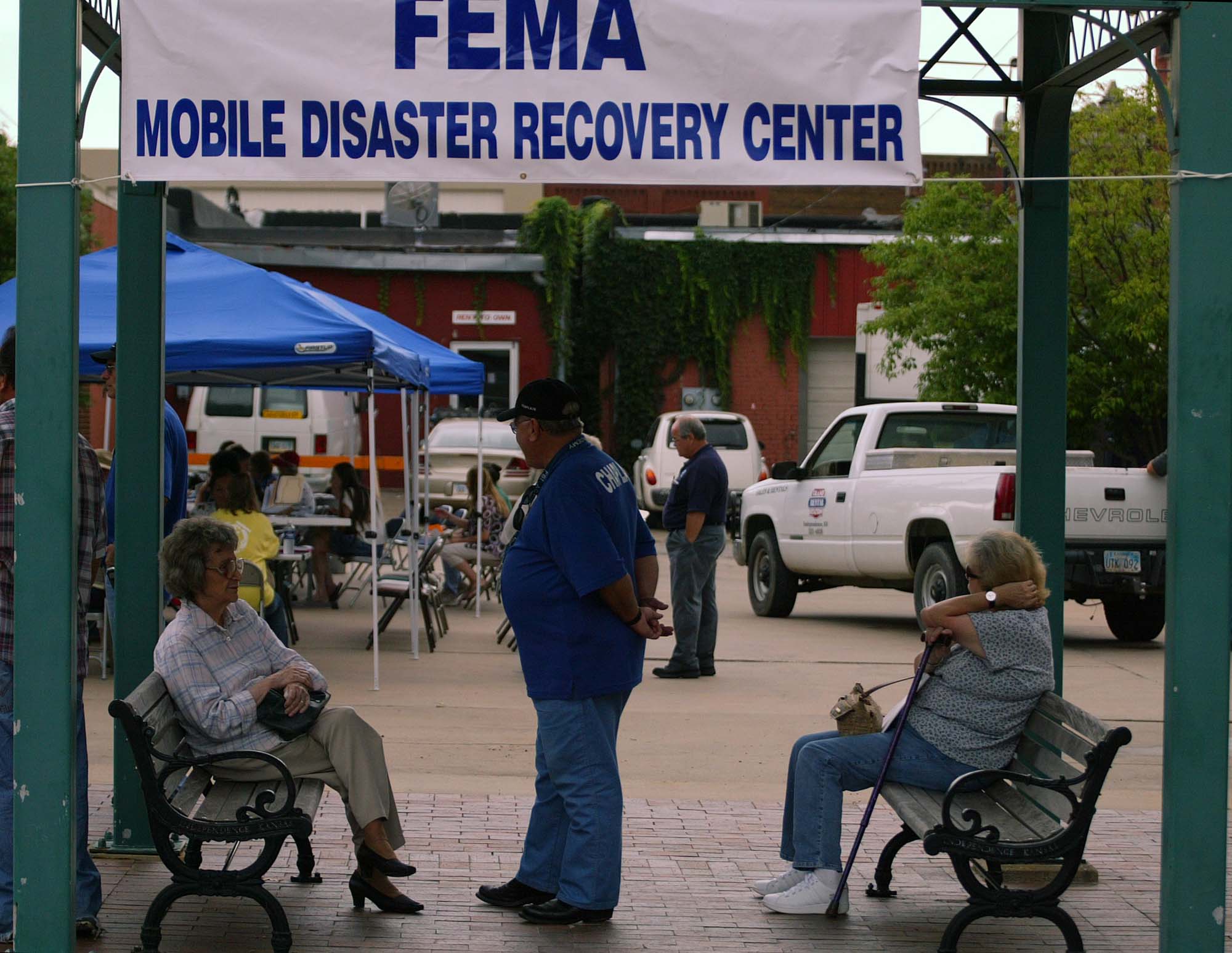
FEMA mobile disaster recovery center.
Since Hurricane Katrina, three real villains have emerged in New Orleans: the Army Corps of Engineers for its poorly built floodwalls, FEMA for its "heckuva job" and the insurance industry for its stingy payouts and its deliberate and heartless attempts to rid its books of South Louisianians.
The corps says it will do better. FEMA promises the same. But the insurance companies, for whom the bottom line is most important, are unrepentant and unyielding. Pricing homeowner's insurance out of the reach of most residents means fewer payouts if there's another catastrophe. That isn't something the industry will apologize for. To the contrary, it's the industry's strategy to please its shareholders.
That strategy is stymieing New Orleans' recovery. New Orleanians need houses, houses require mortgages, and lenders mandate that a mortgaged property be insured. But when insurance is prohibitively expensive, places outside South Louisiana become that more attractive.
Hurricane Katrina did not hit New Orleans. There were some high winds in the city and a good amount of rain, but it's important to remember that New Orleans' devastation was caused by levees and floodwalls that fell apart, and that those structures fell apart not because water overtaxed them but because they weren't properly built.
Because water damage predominated, the overwhelming majority of insurance payouts were made by the government-backed National Flood Insurance Program. Even so, companies that sell homeowners policies are withdrawing as if a hurricane actually hit New Orleans, as if they didn't make record profits in 2005 and as if the Corps of Engineer's promise of better flood protection is meaningless.
Those companies are doubling and quadrupling the cost of their policies even on customers who did not file a homeowners claim after the hurricane. Some of those companies multiplying their rates are simultaneously halving their coverage. They are, for example, refusing to cover damages caused by wind or hail and only leaving themselves at risk for losses such as fire and theft. For the people who remain in New Orleans now, such a strategy has the potential to drive them away.
Affordable insurance is something homeowners and would-be homeowners used to take for granted. Now it is probably the most coveted treasure in the New Orleans metropolitan area. There are plenty of homes for sale in areas that did not flood and in the areas flooded by the levee failures an increasing number of renovated homes. A person eyeing the local housing market may imagine himself in a certain Creole cottage, California bungalow or double gallery home. But whether the home is the right fit for him is not as important as finding a company to insure it.
Jarvis DeBerry is an editorial writer and columnist for The Times-Picayune newspaper in New Orleans.